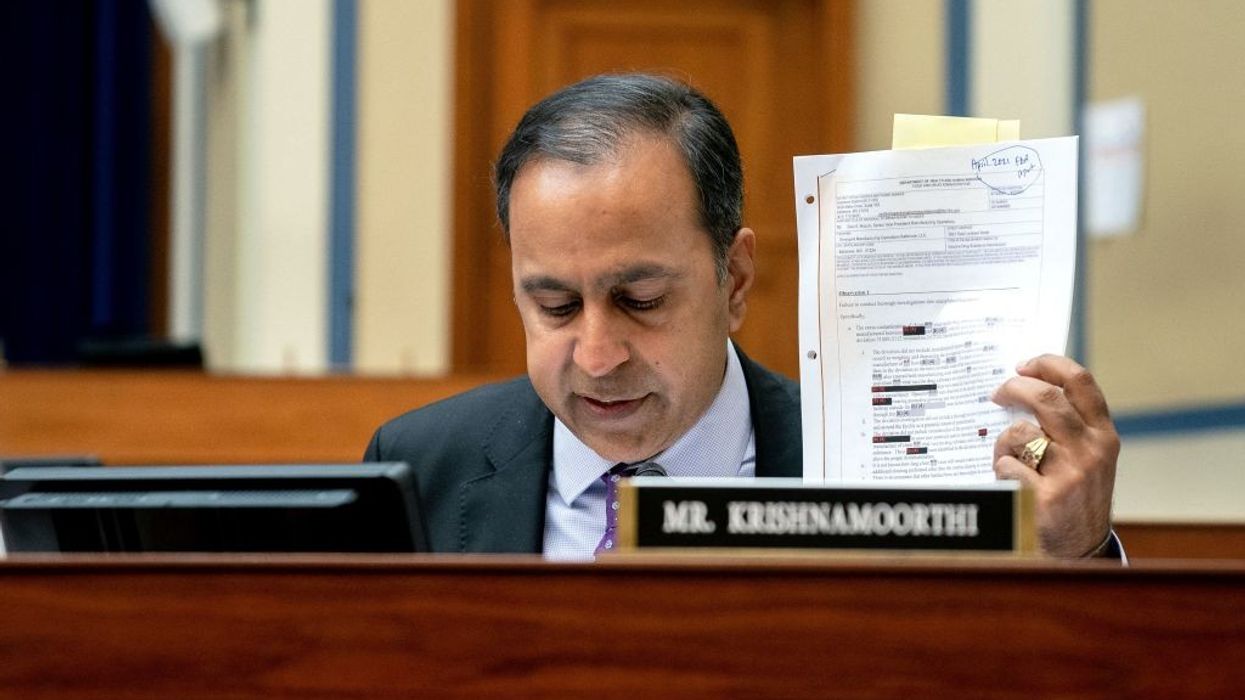AN Indian American Congressman has urged the Biden administration to do more by expanding its global vaccine aid programme to India.
Raja Krishnamoorthi added that the US has allocated only 7.5m doses of Covid vaccines to India.
His statement came on a day when the White House said it is “eager” to continue the partnership with India in the fight against coronavirus and wants to provide assistance, including vaccines.
Krishnamoorthi has secured the support of 116 members of Congress for his ongoing effort to expand the US global vaccine aid programmes to India and other nations.
"The US has so far only allocated 7.5m vaccine doses for India. I'm once again urging Biden and my colleagues in the Congress to come together and pass the NOVID (Nullifying Opportunities for Variants to Infect and Decimate) Act into law to end this pandemic for good because, so long as outbreaks continue in any nation, the entire world faces the threat of new, vaccine-resistant variants,” Krishnamoorthi said in a statement.
“As we approach Indian Independence Day, we need to declare our independence from Covid by creating the global partnership necessary to produce and deliver the billions of vaccines necessary to truly bring this pandemic to an end. Meeting those goals will demand the continued cooperation of the world's leading democracies and producers of these life-saving vaccines, including the US and India."
Under the NOVID Act, which Congressman Raja Krishnamoorthi, Senators Jeff Merkley and Elizabeth Warren introduced with Congresswoman Pramila Jayapal, the US will establish the Pandemic Preparedness and Response Programme (PanPReP) to oversee the global health response to the pandemic.
It will coordinate efforts between the department of state and various other departments. ,
After the pandemic, the programme will shift to protect against future pandemics by coordinating a global disease surveillance network to identify and stop pandemic-potential pathogens before they spread uncontrollably.
The bill will authorise spending of $34bn for various initiatives including establishing a global disease surveillance network to protect against future pandemics.





